| Umělec magazine 2003/2 >> Field Trip Theater diary on the forum accompanying the Berlin theater festival Theatertreffen | List of all editions. | ||||||||||||
|
|||||||||||||
Field Trip Theater diary on the forum accompanying the Berlin theater festival TheatertreffenUmělec magazine 2003/201.02.2003 Halka Třešňáková | news | en cs |
|||||||||||||
|
May 4, 2003, day one
Arrival in the commercial quarters of Berlin, close to Kurfürstendamm. Unknown faces in the lobby of the hotel Willmersdorf. In the elevator I met a woman and a man from Lithuania. The man’s name was Aistis Mickevičius, and the woman’s Ruta Papartyté, and the Hungarian Emese Szakacs. In the room in the hotel I perused their CVs and texts. The one by Szakacs catches my eye: “...life is full of surprises, only we haven’t learned how to perceive them. Every day we walk past smoldering cigarette butts in the underground, shriveled lemon slices, broken shards of glass, and stray dogs without opening our eyes properly to them. The theater strives to open our eyes. We are put into strange situations to learn how to stop thinking and to not ignore them. To catch the silence and the strength of this very moment.” I read this for the first and last time while in Berlin. The folio with the participants’ CVs fell behind the bed. The first day I skip the performances in the Forum, and instead go jogging in the park near station Bahnhof Zoo, not far from the hotel. Three pleasant weeks of simply watching performances, attending discussions about contemporary theater, and everyday a dance workshop. I run around Tiergarten, past the park benches and later I learn that Mr. and Mrs. Bench always sit on the same one, as if it were their house. They don’t know me yet, but they wave to me, they chant to my rhythm and offer me beer. Turks, bums and punks, surrounded by a pack of dogs, swimming in the park ponds. Near the end I cruise over the famous lawn where Berlin gays sunbathe in any weather. With pleasure I dodge among the many bare male bodies. Young bodies, old bodies, bald, with dreadlocks, unbelievable. Then I run out of the park, turning a corner... May 5, official opening of the Forum. Manfred Linke, founder of the project, hunched, a limping old man with a smile plastered on his face, gives an inappropriately long speech. He speaks slowly, and I wonder if it’s because his address is attended mostly by foreigners. Later it comes out that he is the self-satisfied type who like to listen to his own words. At the same time Manfred Linke introduces the leaders of the workshops: the Korean director Youn Taek Lee and the Swiss director Elias Perrig, the German dramatist Falk Richter, who’s a hit this year, and the Brazilian choreographer Rodolph Leoni, who’ll be my teacher for the next three weeks and I am glad. He’s quiet, but right from the start he introduces himself with a few dance steps and graceful motion. Manfred Linke begs us at the end of his address to remain calm and appreciate our participation in the Forum, to come on time to all actions, preferably ten minutes earlier. Later we learn that he checks attendance and early arrivals and frowns upon late-comers. A German approach and the feeling that I am on a three-week school field trip creeps in. But at the same time I appreciated that this was also one reason why the Forum was taking place for the fortieth time. At first glance the expensive stage set by scenographer Jan Pappelbaum for a performance of Ibsen’s Nora under the direction of Thomas Ostermeier in the theater Shaubühne at Lehniner Platz shocks me. A realistic modern interior of a divided two-storey family house. The family house turns on a revolving stage always with the relevant scenes facing the audience, who can watch the story in the hall, in the living room with a huge aquarium with live fish or in the study. The perfectionism puts me off. It looks seamless, for me its basic mistake. Director and actor Juan Cordido: “That is why I work with theater, it reminds us of the small, the immediate, the imperfect, the fallible, the mortal... the human. As an alternative to the spectacular, the smart, the virtual and pre-prepared, prefabricated, which is offered by Hollywood and the TV program.” The ad slick perfection of the actors and their acting impress me as if I’m watching an episode on German TV. Still, I have to say that I wasn’t bored by this unusual take on Nora, staged in the present time in a high-society family. May 7, the fifth day Discussion on the theme: “The urge for innovation versus forgetting tradition.” As if speaking is something that mostly reassures one’s personality, intellect and mainly the useless entangling into one’s own statements and again into counter-arguments. Two discussions are led by moderator professor Hajo Kurzenberger, who in his self-confidence likes — especially with foreign participants — to take their sometimes complicated statements and make his own verbal interpretations of them and then declare them as their utterances. This was one reason some foreigners skipped the discussions, or dropped off in the back seats of the lecture hall. In the evening, we go to see a performance of Master and Margarita. Director Frank Castorf and scenographist Bert Neumann are a well-known couple from a theater that dangerously moves the current German theater scene. In their expression they use methods probably no one else would dare to use. Long, detailed shots of actors taken on camera and projected directly on an ad board above the scene help us approach the whole story as if it’s a dream. Close-ups of palms, faces, wrinkles, fingernails gnawed to the quick. Directors René Pollesch and Frank Castorf became something like cult heroes for young people and in their presentations they find questions and incomplete answers about their own lives. In one scene in Master a glass bar stands in the foreground, strongly resembling a eatery at a railway station. Above this hangs a huge billboard on which are projected the above-mentioned dramatic details. To the right, Margarita ascends to her room and the viewer can see it partly through the window, partly through the blown-up details projected on the billboard. The shimmering of the silhouettes, lights and shadows, scraps of dialogue among the bar visitors, all this takes on a dreamy quality. This dream as id is a perception of the rawness of everyday life, cold, pale-blue light from the fridge, unpleasant, the regular flicking of the billboard... What makes this performance exceptional? The way in which it induces its dreamy illusion through the veracity of the actors, materials from everyday life and the intentional ignoring of art esthetics. The actors walk through the labyrinth of the scene, in places they fade from sight, in some situations they’re naked in the bathroom, filmed by the camera placed in the shower. Bare in their physical reality to testify more adamantly to their humanity. May 13, the seventh day. Presentation of the life and work of Rima Raminfar from Teheran. The Iranian director is a very interesting woman, very cheerful, stout, all in black, but under her skirt she wears jeans, as she showed me in the elevator. There was a lot of buzz around her, as she spread incomprehensible stories. She pulled down her headscarf only sometimes and in private, while we all were at a party in someone’s hotel room. An Iranian emigrant, a director living in Berlin appeared unexpectedly at her presentation. She probably invited him in secret as she couldn’t do it publicly. Some controversial questions, she couldn’t answer honestly. They would cause her problems later in her country, so she passed them over with a smile to the director, who’s probably not be going back to Iran. As she told us, the Iranian theater has to undergo an incredible number of censorship procedures. First there is the yearly censorship of written texts. Then the approved text of the play is rehearsed and even during the rehearsals the censor comes twice, he can cancel the performance at any point. In no way can it diverge from the censored text. Before the opening night it is played once only for the censors, and not only the script is evaluated, but also the costumes and the whole execution. In Iran dancing, singing, touching, showing emotions and pronouncing the word “love” or “I love you” are all forbidden. Guest performances from a foreign theater undergo the same censorship regime, changing their costumes, rewriting whole scenes of the play, skipping the dancing and singing, or simply accepting that the performance won’t make it through censorship and will not play in Iran. Rima herself has had to seek out intricate ways to get around all these rules and laws. For example, women combing men’s hair is allowed, so she demonstrates one love affair through hair combing. The expression of emotions she often shows by having actors manipulate objects. She told us the story line of one play: a husband and father of a family locks himself in a bathroom for six months, and the family has to solve this problem. One participant asked if it was common to lock oneself for such a long time in the bathroom. With a smile she said yes. And the invited director continued, answering the question for her. He said that in Iran many people very often close themselves up somewhere, and not only in the bathroom, that families have many things to solve. May 15, the ninth day Leonce and Lena by Georg Büchner under the direction of Robert Wilson. Presentation of Jina Sohn from Seoul. Actor Jina Sohn trained me in the practical classes of Rodolpho Leoni. We were both very small and only the two of us could face each other, so we did all the exercises together. Jina is open and popular and many came to her presentation. But in the end we were disappointed because Manfred Linke invited a Korean theater official who had a prolonged paper about the History of Korean theater. And Jina, which everyone had been waiting to see and hear, and of which we expected a natural and open dialogue and a presentation of her personal work and experience, became completely helpless next to the theater theorist. May 16 The presentation of a 26-year-old director and actor Juan Cordido from Caracas, Venezuela. Very interesting, close to me. It was not possible to define the borders separating him and his work. I go jogging. Again I run around the Tiergarten past the park benches. Mr. Bench waves to me and Mrs. Bench is asleep on her bench. As I run, I can’t stop thinking, as if I’m running with my head as well as my feet, with my thoughts. Impressions, I run and I succumb to the flow of associations: ...turn round, I can’t get in, going round, not to let go, not yet, impatient changes of position, walking round oneself, are we two or one, ... I cross some street, ... foreword, way, road, a few cars, man gets scared by those lights, entrée, a spinney, animals walk around themselves, the tops of blades sway, past the zebra crossing. I start going up, I ascend, damp soil, it is alive, I dug with my hands in the earth... I run around the park, turn a corner.... May 18 The farewell party. A funny event towards the end of the party: at 4 o’clock, a drunk German impudently persuades petite, smiling and complacent Japanese director Hatsumi Abe to go to bed with him: “Come home with me...!” “Home? Ja, ja, home,” genteelly agrees Hatsumi Abe. “Komm mit mir nach Hause, zusammen schlafen...!” “Ja, ja, yes, sleep together, ja!” “Well come on then.” Amused, I explain to her: “Hatsumi, he wants you to sleep with him. Sleep together. To have sex. Do you want to sleep with him? You don’t have to! Nein, nicht zusammen schlafen.” I help her. And Hatsumi Abe, who speaks the worst German of all of us, but is excessively polite, agreeing with everyone and everything, she repeats quickly after me: “Nein, nicht zusamment schlafen, nein...” May 19 The last day of Forum. We all say goodbye and promise to meet again. But in our thoughts we are far away, everyone to a different part of the planet. Only the Romanian Daniela Török cries in the hotel lobby, because she missed her plane and has no money for another ticket. I stay in Berlin and go jogging.
01.02.2003
Recommended articles
|
|||||||||||||
|
04.02.2020 10:17
Letošní 50. ročník Art Basel přilákal celkem 93 000 návštěvníků a sběratelů z 80 zemí světa. 290 prémiových galerií představilo umělecká díla od počátku 20. století až po současnost. Hlavní sektor přehlídky, tradičně v prvním patře výstavního prostoru, představil 232 předních galerií z celého světa nabízející umění nejvyšší kvality. Veletrh ukázal vzestupný trend prodeje prostřednictvím galerií jak soukromým sbírkám, tak i institucím. Kromě hlavního veletrhu stály za návštěvu i ty přidružené: Volta, Liste a Photo Basel, k tomu doprovodné programy a výstavy v místních institucích, které kvalitou daleko přesahují hranice města tj. Kunsthalle Basel, Kunstmuseum, Tinguely muzeum nebo Fondation Beyeler.
|







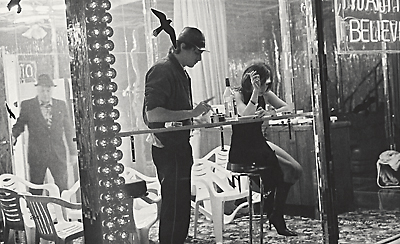
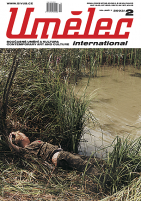


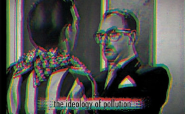
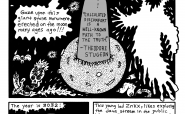
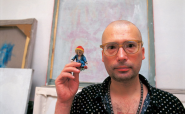
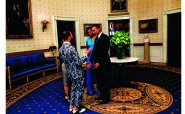







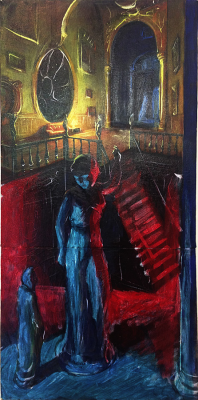




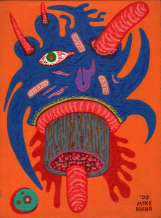
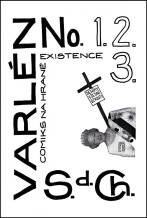
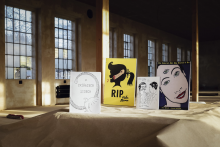
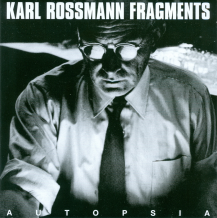


 We Are Rising National Gallery For You! Go to Kyjov by Krásná Lípa no.37.
We Are Rising National Gallery For You! Go to Kyjov by Krásná Lípa no.37.
Comments
There are currently no comments.Add new comment